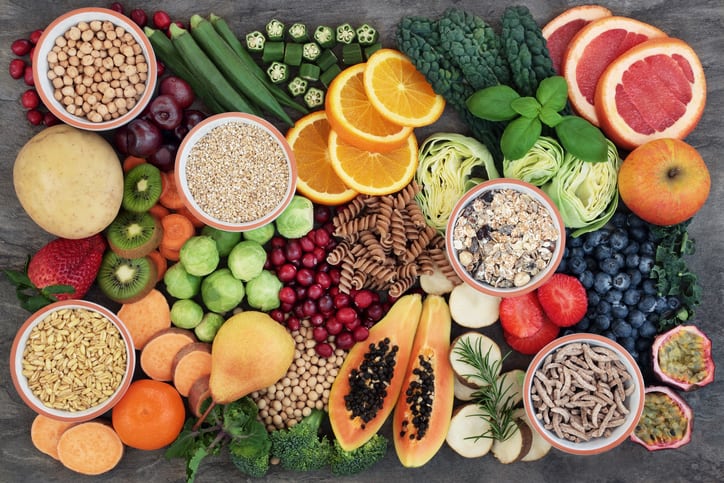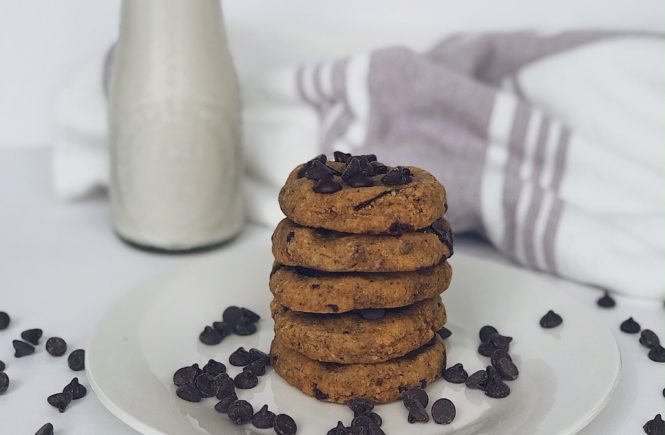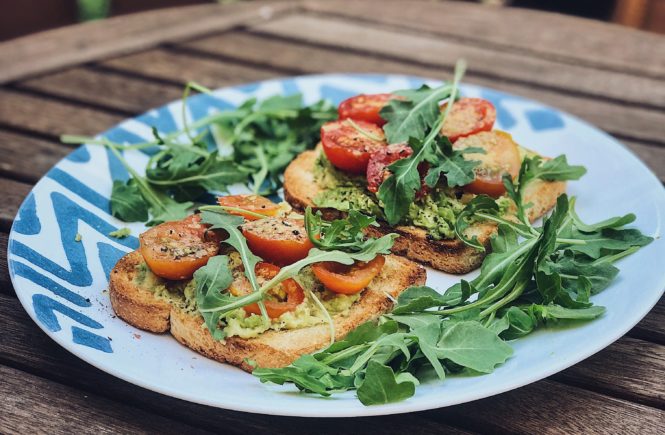Whether you are already on the plant-based train or the idea of it intrigues you, frightens you, or makes you roll your eyes back into your head, you should know that for a long time, I did not feel it was practical or necessary to eliminate animal products from my diet.
Some people just do not want to give up meat, and for the record, I am not here to force my opinions on anyone or tell them how to live their life. It doesn’t matter if you are an herbivore, omnivore, or carnivore. Everyone can benefit in some way from learning more about the science behind a primarily plant-based diet. After all, knowledge is power.
Bearing in mind that Om Made is a health and wellness blog and I have a vested interest in healthy plant-based food and nutrition in general, I’d like to share a bit about my personal dietary choices, why I chose to eat/live this way, and how others can benefit from adopting this lifestyle.
My goal is to give you the tools necessary to arm yourself with knowledge, regardless of where you are at in your life currently, so that you are able to make informed decisions as an individual. NOT to persuade you to do what I am doing, or what anyone else says you should be doing, for that matter.
One more thing to keep in mind: we are all different. What works for me may not work at all for you, and vice versa. We all have different tastes, different lifestyles, different bodies, different goals. But the emerging research and general logic behind a plant-based diet is something that, quite simply cannot be ignored. Which explains why it has gained so much momentum over the last few years. Impossible Burger, anyone?
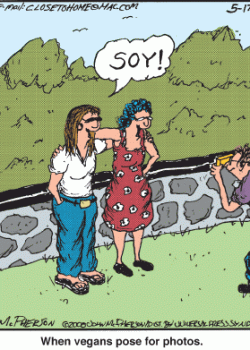
Whole Food Plant-Based vs. Vegan
You might be wondering what the difference between Whole Food Plant-Based (WFPB) and Veganism is. Well, the answer could be everything or it could be nothing. It all depends on the individual’s lifestyle.
For example, you may have heard through the grapevine that Oreos are considered vegan because they do not include any animal-derived ingredients. So technically, a vegan could eat Oreos and still be a vegan. Whereas, someone on a Whole Food Plant-Based diet would choose not to eat an Oreo because it is known to be processed junk food.
This is not to say that vegans live on junk (although some do) but it is possible for someone to exist merely on processed non-animal-product-containing junk food and still label oneself vegan.
A vegan is someone who chooses not to consume any animal products including meat, eggs, dairy, or animal-derived ingredients such as gelatin and honey. Not only do they avoid such ingredients in their food, but this ethical principle carries over into their everyday product choices, like cruelty-free shampoo and makeup, and not wearing or buying leather or silk.
A WFPB follower is someone who abstains from consuming animal products, the same way a vegan does, but processed foods, refined oils, refined sugar, and refined grains (like white flour) are also “off the table” so to speak. WFPB focuses mainly on fruit and veggies, whole grains, legumes, beans, nuts and seeds.
Why Is a Whole Food Plant-Based Diet a Good Decision For Our Health?
This is an extensive topic that I could go on about for quite some time. But in an effort to keep this post as concise as possible, I will summarize to the best of my ability.

Our Place In Nature
First off, let’s take a look at our closest relatives in nature: primates. We share over 99.4% of our DNA with monkeys, gorillas and chimps. We share similar physical traits such as our hands (fingers and opposable thumbs) and our flat teeth (perfect for grinding up plant matter).
Now let’s look at a carnivorous animal, like the lion. Lions have sharp fangs and claws (perfect for tearing into the flesh of their prey and ripping it apart with their teeth).
So right away, we can see an obvious difference in these two animals. And we can also see that, similarly to that of a primate, our physical attributes do not support the consumption of meat. But what about what we can’t see?
Wreaking Havoc On Our Digestive System
Carnivorous animals have a very different digestive tract than herbivores. The human intestine (as well as the gorilla’s) is around thirty feet long. We were designed to have a slow digestive process (hence the long intestines), so that our bodies have time to properly absorb nutrients from the food we eat.
The lion, in contrast, has a very short digestive tract, which translates to a much shorter digestion process than ours. Why is this shortened process necessary for the lion?
Well, its body, unlike ours, is designed to consume animal protein, which leaves behind an acidic residue. The body is intelligent and knows that it needs to get rid of this acidic waste matter as soon as possible. This quick digestive process keeps the lion healthy and prevents a toxic buildup.
A lion’s stomach juices are ten times higher in acid than human stomach juices. This high acid content helps to facilitate the breakdown of animal protein. A human’s are far less concentrated and not at the optimal ratio for efficiently breaking down this difficult protein. Additionally, the human liver has a very low tolerance for uric acid, a by-product of the digestion of animal protein.
So, what does all of this information mean?
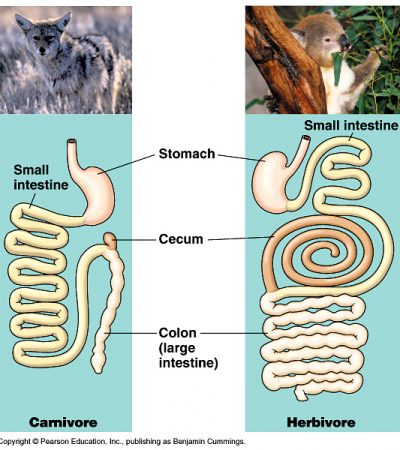
Going Against Mother Nature
Consider this: fruit is the quickest and most easily digestible food, taking only about 20 minutes to digest, with vegetables coming in second, then grains, making protein (including plant protein) the longest and most difficult to break down.
Our digestive tract simply was not designed to process large amounts of meat. It is a slow process and the environment in there is hot! So when we continue to eat in this carnivorous way, the meat that is trying its very best to pass through our digestive tract is, for lack of a better word, putrefying in our body. Lovely.
So remember how I mentioned that breaking down meat triggers a release of toxic by-products such as uric acid? (Along with purines and ammonia.) Well, these things create acidity in the body. This is a problem because the body is meant to be slightly more alkaline than acidic. The pH scale ranges from 0.0 being totally acidic, 7.0 being neutral, and 14.0 being totally alkaline. The ideal pH level of our blood is 7.365.
You might have questions about which foods are actually acidic. For instance, just because a lemon is acidic in flavor, does not make it an acid-forming food. In fact, it leaves behind an alkaline residue in the body. Whereas chicken, does not have an acidic flavor profile but will leave behind an acidic residue.
Where's The Evidence?
“There are over 3500 scientific studies involving over 15,000 research scientists that report a relationship between the consumption of meats, poultry, eggs and dairy products and the incidence of numerous health issues, including but not restricted to heart disease, cancer, kidney failure, constipation, gout, gallstones, diverticulosis, hemorrhoids, and osteoporosis.”
Kimberly Snyder, C.N. The Beauty Detox Solution
There are thousands of enormously informative studies on the link between animal protein and various diseases that I could list here, but for the sake of simplicity I will just focus in on the most comprehensive study of nutrition ever conducted: The China Study. Head of this study, T. Colin Campbell, Ph.D, eventually published a book, The China Study, on his findings that I highly recommend if you want to learn all about the details of this incredible project.
Fun fact: Dr. Campbell grew up on a conventional dairy farm and regularly enjoyed “nutritious” cow’s milk. Well, that’s all out the window now.
Here is a breakdown of the core findings of The China Study:
- There is a strong correlation between animal protein and dairy and the growth of cancer cells.
- Eating mainly plant-based can literally reverse heart disease.
- A plant-based diet provides adequate protein, calcium, and every other nutrient and mineral we could ever need.
- High protein diets have dangerous effects on your health and can only result in short-term weight loss.
- Eating meat is completely unnecessary. Any nutrients you obtain from meat, can be better obtained from plants, along with a myriad of other health benefits.
- This study is based off of TONS of data. Remember, we’re talking most comprehensive study on the diet and disease correlation EVER done.
- For abundant health, eat less animal products and more plants. Period.
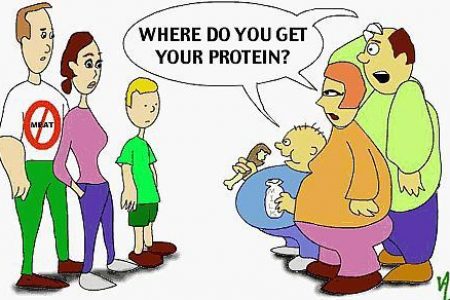
But... Where Do You Get Your Protein?!
Ah, the token protein question. For the sake of my own sanity, I will say this one time only: ALL PROTEIN COMES FROM PLANTS.
That’s right, folks! Any protein you’re getting from animal products is recycled protein from plant matter. You can easily get all the protein, calcium and other nutrients your body needs to thrive from a WFPB diet. I plan on dedicating an entire blog post to this topic, so stay tuned. 😉
If it’s muscle mass you’re worried about, fear not. Remember that close relative of ours, the gorilla? Well, the gorilla is the strongest animal on earth. And a natural vegetarian! They get all their protein from amino acids found in plants.
Something I found to be particularly important in terms of satiety during my conversion to a plant-based diet was the addition of lots of fiber. In today’s Standard American Diet, it is almost impossible to have a protein deficiency, yet less than 3% of Americans meet the recommended daily fiber intake. That’s crazy!
This is likely because all fiber comes from plant foods and most people are not eating enough plants. It’s no wonder America is overfed, yet malnourished.
I’m grateful to have always been a veggie lover, but it was only when I really started to dive into the WFPB journey that my whole diet began to revolve around the power of vegetables. Veggies are now very often the foundation of my meals, rather than a side dish. This uptake in fiber is crucial to the plant-based lifestyle.
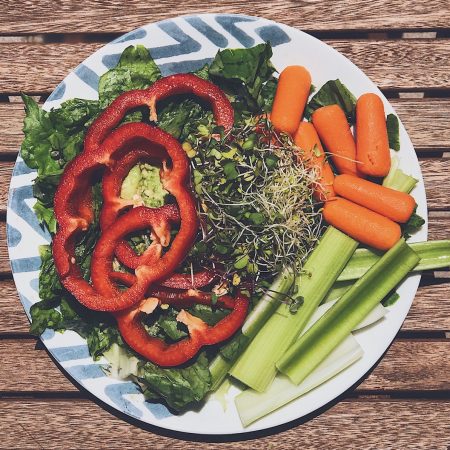
Tips For Transitioning to Plant-Based
- Although it is preferable, you do not have to completely give up meat if you don’t want to. Simply reducing your meat consumption will make a noticeable difference in your health.
- If you eat a lot of meat, consider replacing all that beef, pork and poultry with low-mercury seafood and eggs, which are still acidic in the body, but are significantly less acidic than land animals. Let’s say you eat chicken for dinner every day. Consider instead including salmon or eggs in up to three meals a week and a incorporating a lot of fibrous veggies, which will help satiate you.
- Experiment with different sources of plant protein such as beans and legumes like chickpeas and lentils, nuts and seeds like almonds, hemp seeds and sunflower seeds, and minimally processed organic soy products like tempeh (fermented soy beans).
- I recommend enjoying soy in moderation and I personally do not consume it more than once a week because it contains phytoestrogens that can mess with hormone levels when consumed in excess. The only soy products I consume are organic tempeh and miso here and there because they are the least processed.
- Tofu is highly processed and I personally try to avoid it. Also, always make sure your soy is organic and non-GMO, as it is one of the most pesticide-saturated crops and highly genetically modified when conventionally grown.
- If you are very active like me and like to refuel with a protein smoothie after workouts, I recommend plain organic pea protein, hemp protein, or sprouted brown rice protein.
Conclusion
I personally believe in the power of a plant-based diet. However you do not need to follow some strategic set of guidelines or be “perfect.” All you need to do is make progress. Experiment with different things and stick with what makes you feel good in your own skin!
If you do decide to try it out, remember that any big transition is not going to happen overnight! Building up toxicity in the body takes years, and it’s going to take time and effort to detox. But don’t worry, even if this all seems daunting, take things one step a time and don’t give up. Consistency is key!
Eating this way is about so much more than the link between diet and disease. It’s about healing from the inside out. It’s about learning how to truly nourish your cells instead of just eating mindlessly. It is a holistic approach not only to health, but to life. It is not a “diet”, but a lifestyle. It is all-encompassing. True food has the power to heal.
Are you following a vegan or WFPB diet or considering making the switch? How has it impacted your health/life? Share your thoughts below!
